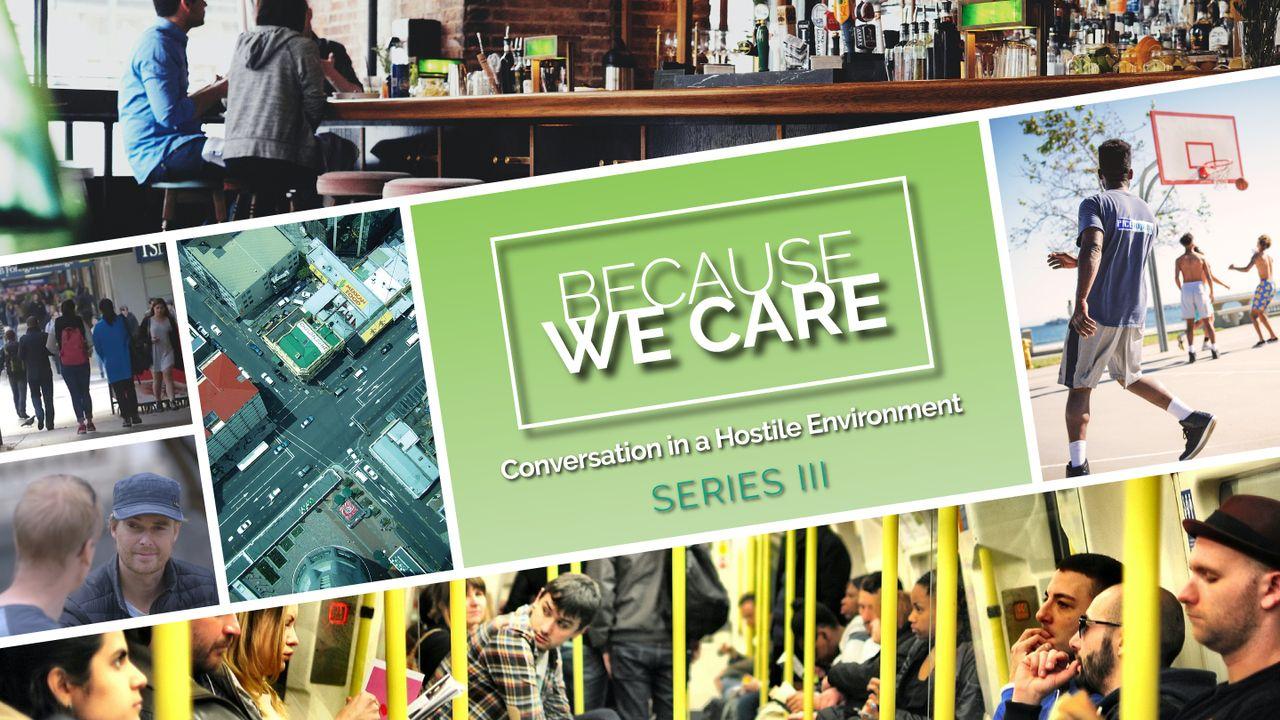Because We Care – Conversation in a Hostile EnvironmentMuestra


HOW TO SAY NOTHING - UNLESS YOU REALLY SAY SOMETHING
Can you remember a time when an important conversation was happening - and you said way too much?
How about a time when an important conversation was happening - and you said way too little?
While reading Mark 10:17-22 consider these questions:
- Jesus was 100% good. Why do you think he asked, ‘Why do you call me good?’ instead of answering the question?
- Why do you think Jesus went on to list the various commands when he already knew there was no way this man could have kept them all?
- Do you think the rich man’s claim that he’d kept all of these commands was true?
- The disciples seemed to feel Jesus’ final instruction to this man in verse 21 was a bit harsh. Do you?
- What motive did Jesus have in his heart when he gave the man this awkward and difficult instruction? (It’s stated in verse 21).
- How was the way Jesus engaged this conversation wise?
Note that Jesus may not have explained that salvation was a gift from God, received through faith, because (a) he was still on the way to the cross himself to pay for our sin, (b) he might have had foreknowledge from God that this man would later become aware of his own death and resurrection, and surrender his life to God then. We don’t know.
CONSIDER:
We are often wise to investigate why people say things before speaking, because much can sit behind a question or comment.
Did any examples from the video today stand out to you as a good way to redirect a conversation?
Identifying the question behind the question.
Go through your list of ‘toxic topics’ again from 'Day 1' and consider afresh:
• What might the question behind the question be?
• What question could we ask to draw this out?
• What question could we potentially ask to avoid answering their question if we sensed a hostile motive?
REFLECTION:
Revision questions as a summary of this series:
How did Jesus respond differently to those who were interested, disinterested or hostile toward him?
How did Jesus avoid giving ‘quotable quotes’ to some people, and why?
How did Jesus avoid giving ‘quotable quotes’ when trying to teach the crowds due to the varying motives of people present – while still saying something useful?
While Jesus was deliberately quiet on some topics, what topics was he deliberately vocal about?
On what basis did he decide what he would or would not say?
What have you got out of this series?
PRAYER POINTS:
- For your nation as a whole
- For the Government
- For key people in public media
- For the people of your own city and community
- For the Principal and teachers of your schools
- For each other as witnesses to them all!
Summary statement:
To help people take steps toward Jesus we need to address the questions and needs of their hearts. A person’s first words don’t always reveal this. In fact, first words are often a ‘smokescreen’. While it is encouraging that some are interested in seeking spiritual truth, others will be disinterested, and others hostile, and for a wide range of reasons. This is why Jesus consistently asked questions – to uncover the motives of people’s hearts. He told intriguing stories for the same reason – to sift his audiences. Only then did he truly engage, because he had discerned their sincere motives, and also how he could best encourage their faith.
Be encouraged as you share the gospel!
Escritura
Acerca de este Plan

“I am sending you out like sheep among wolves…be as shrewd as snakes…innocent as doves” Matthew 10:16. Culture is ever-changing, meaningful conversations can become more difficult as hostility increases. This plan will encourage you to learn from Jesus example as he engaged with the interested, only sought to intrigue the disinterested, and deflected the hostile. He both thrived and achieved his purpose on earth despite hostility, and so can we!
More
Planes relacionados

Cuatro Metas Para El Nuevo Año - Un Mensaje De Motivación Desde La Prisión De Roma

Semana Santa con Marcos

Fortaleciendo El Matrimonio Mediante La Palabra De Dios

Nuevo Comienzo. 8 Pasos Para Ser Más Disciplinado.

7 Días Para Experimentar El Poder Transformador De Dios.

El Amor de Pareja Según Dios

Día 41

La Gracia Del Perdón

Vence La Ansiedad Con La Paz De Dios
